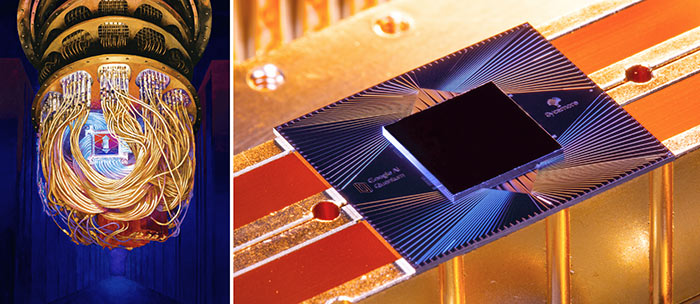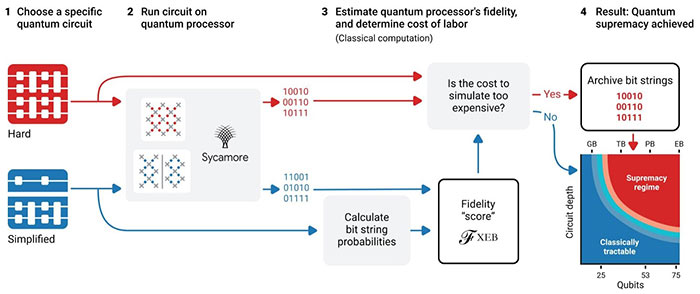In a blog post published today, Google asserts that it has demonstrated quantum supremacy in an experiment using its 54-qubits 'Sycamore' based processor system (though only 53-qubits worked). Spreading the news, Google CEO Sundar Pichai Tweeted that he is "very proud that our @GoogleAI team has achieved a big breakthrough in quantum computing known as quantum supremacy after over a decade of work," and went on to thank Google collaborators in the research community.

If you read through the top linked blog post you will read that Google reasons that it has achieved this milestone as its Sycamore system completed a random number checking algorithm on a sequence of numbers in 200 seconds. Google goes on to assert that the same task would take 10,000 years to complete running on the classical computing Goliath that is IBM's Summit supercomputer.
Thus Google reckons its Sycamore based system met the criteria for quantum supremacy - namely that it can complete calculations that a classical computer cannot feasibly complete. The contrast between 200s and 10,000 years is rather a startling one and shows that the Sycamore system is 1.5778463 × 109 times faster in this case.

The above is impressive on the surface, but IBM and various other scientists and researchers have stepped forward to question Google's quantum supremacy achievement claim. IBM, for example, says that its own conservative worst-case estimate of completing Google's random number simulation on Summit is 2.5 days, and it would be performed with "far greater fidelity". With further refinements and tweaks to code and system architecture it could reduce processing time further. In summary though, 2.5 days is not an unreasonable time for a computer to calculate a problem, so Google's Sycamore system hasn't demonstrated quantum supremacy, opines IBM.
IBM suggests that Google has broadly misinterpreted quantum supremacy but with fairness says its experiment is nonetheless "an excellent demonstration of the progress in superconducting-based quantum computing".
A carefully chosen problem to make Quantum computers look good?
John Preskill, a CalTech physicist who originated the phrase 'quantum supremacy' in a 2012 paper, recently wrote about Google's experiment in Quanta Magazine (the experiment results were leaked early). Again, hearty congratulations were offered, but Preskill questioned the problem set and comparison with classical computer capabilities.
Specifically, Preskill noted that the problem chosen by Google "was carefully chosen just for the purpose of demonstrating the quantum computer's superiority," and the answer provided at the end of the calculation wasn't very worthwhile. The biggest hope from this is that now this milestone is behind them, the research team at Google can search for more useful applications in which Quantum Computers can shine.













